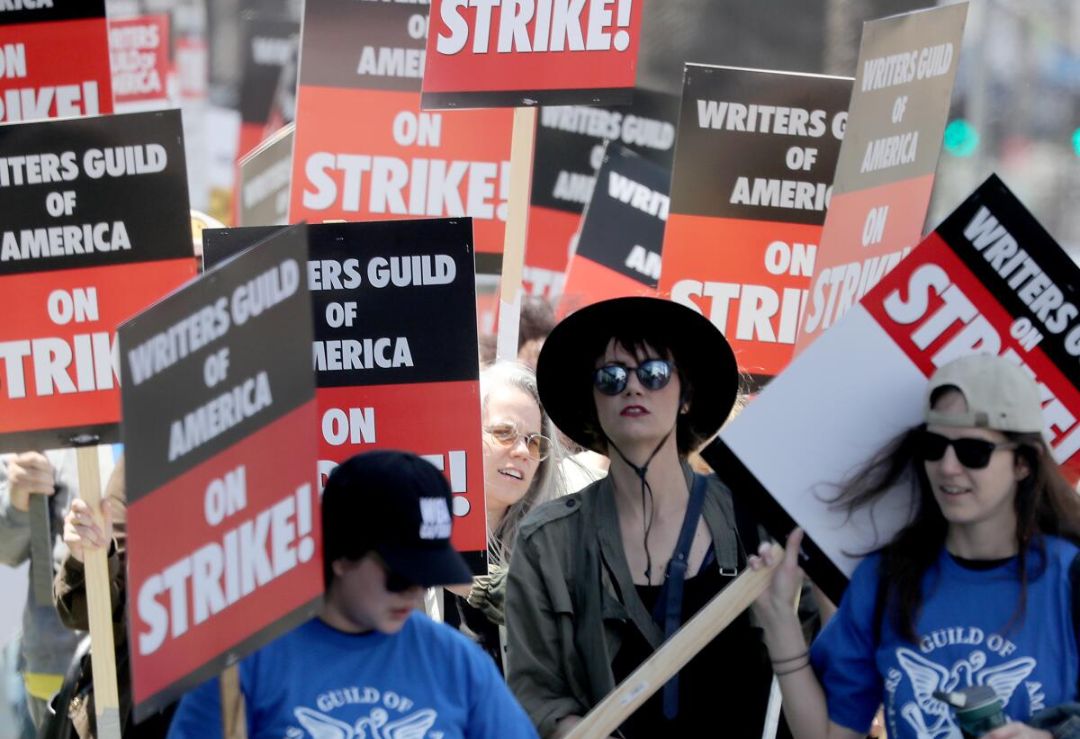The ongoing Hollywood strikes of 2024 have sent shockwaves through the entertainment industry, affecting the production, release schedules, and future of countless movies and television series. As writers, actors, and various other industry professionals take a stand for better working conditions, fair compensation, and clearer rules regarding AI in entertainment, the strikes have put many high-profile projects on hold. This pause has left fans wondering when their favorite shows and films will return, while studios scramble to adjust their strategies to weather the disruption.
One of the most significant impacts of the 2024 strikes is on blockbuster films. Major movie franchises, including highly anticipated sequels in the Marvel Cinematic Universe, DC’s superhero series, and long-awaited reboots of classic franchises, have been delayed due to the work stoppage. Production schedules for these films have been thrown off course as actors and writers join picket lines. In turn, studios have been forced to push back release dates, leaving gaps in the box office calendar for the remainder of 2024 and beyond.
Streaming services have also been deeply affected by the strikes. Many of the biggest original series planned for release on platforms like Netflix, Hulu, and Amazon Prime have experienced delays in filming or have been put on indefinite hiatus. Shows that were set to resume production or launch new seasons this year now face uncertain futures. Series such as “Stranger Things,” “The Boys,” and “The Mandalorian” have had their production timelines extended due to the lack of available writers and actors, leaving fans to wait much longer than expected for new episodes. For the streaming giants, this disruption means having to rely on older content or international productions to keep subscribers engaged.
In addition to halting production on current projects, the strikes have also stalled the development of new movies and TV shows. Writers’ rooms, which are typically buzzing with activity as they craft scripts for future seasons or new pilots, are eerily quiet. This lack of new content creation will likely have a long-term impact on the industry, with fewer new shows being ready for 2025 and beyond. While some studios have turned to international talent and productions to fill the gap, many American-made projects remain in limbo.

The strikes have also forced changes to the marketing strategies for upcoming releases. With actors unable to participate in press tours, interviews, or promotional events, studios are facing difficulties in generating buzz for their films and series. Red carpet premieres, fan conventions, and media appearances have been canceled or downsized significantly. Without the star power of actors promoting their work, studios are increasingly relying on social media and digital marketing to keep audiences interested. However, without the traditional fanfare that surrounds new releases, many films and series are at risk of flying under the radar.
The financial implications of the strikes cannot be overstated. The halt in production has resulted in significant losses for both major studios and smaller production companies. Every day that filming is delayed costs millions of dollars, and the ripple effects extend beyond Hollywood. Many businesses that rely on the entertainment industry, such as caterers, costume designers, set builders, and post-production teams, are feeling the strain as work dries up. The local economies of filming hubs like Los Angeles, New York, and Atlanta are taking a hit, as fewer productions mean less spending in these areas.
Another major point of contention during the strikes is the role of artificial intelligence (AI) in the entertainment industry. Writers and actors are particularly concerned about how AI could be used to replace or diminish their contributions. Writers fear that studios could use AI to generate scripts, cutting them out of the creative process, while actors worry about the potential for AI-generated likenesses to be used without their consent. The rapid advancement of AI technology has sparked intense debates about the ethical implications of its use in entertainment, and these concerns have become a key issue in the ongoing negotiations.
Despite the current disruption, there is hope that the strikes will lead to lasting positive changes in Hollywood. Many in the industry see this as a pivotal moment in which workers can achieve fairer contracts, especially as the entertainment landscape continues to evolve with the rise of streaming and AI. While it’s unclear how long the strikes will last, the outcome could reshape the future of Hollywood in ways that ensure fair compensation and protect creative talent in an increasingly digital world.
The Hollywood strikes of 2024 are a defining moment for the industry. As production halts, release schedules are thrown into disarray, and debates around AI take center stage, the entertainment world is facing one of its most significant challenges in recent history. The outcome of these strikes will not only determine when audiences can enjoy their favorite blockbusters and TV shows again, but also the future of how content is created and consumed in the years to come. Studios, streaming services, and fans alike are anxiously awaiting resolutions that could have lasting effects on the entertainment landscape.





